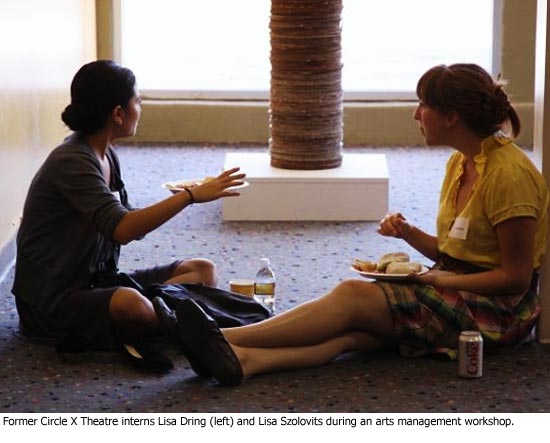Arts internships still up in the air
March 2, 2010
The curtain could come down on L.A. County’s long-running arts internship program this summer, after the Board of Supervisors, wary of an impending fiscal crunch, voted Tuesday to move consideration of the program’s fate into upcoming budget deliberations unless money can be found to support it in the county’s civic art program.
Because of the short timetable for placing interns in summer arts jobs, supporters say that moving the program into budget talks for next fiscal year would effectively kill it.
Supervisors asked the Chief Executive Officer to report back next week on the possibility of using money to fund this year’s internships from the county’s Civic Art Program, which allocates 1% of the budget of new capital projects for the installation of art in and around them.
The CEO had recommended that the board adopt a stripped-down version of the program that would have put 75 college undergrads to work this summer. The program’s funding–$500,000 last year–was to have been cut in half, with concessions and contributions required from participating arts organizations.
But coming up with $250,000 from county reserves was too much for the board majority in the current economic climate.
“It’s going to be a very tough year for us,” board chair Gloria Molina said. “We’re going to be facing some unbelievable challenges.”
She, like other supervisors, praised the internship program. But she suggested that the arts commission and the organizations that employ arts interns needed to do more to tap into Temporary Assistance for Needy Families (TANF) welfare funding to fill their positions this summer.
Molina said the TANF recipients include single mothers getting back into the work force, with children depending on their paychecks. “They might not be the bright young college interns,” Molina said. “They are needy families…who need some help.”
She said the TANF program has created 4,566 temporary subsidized jobs in the private and public sector–more than 1,100 of them in Los Angeles County workforce, from the parks department to the Registrar-Recorder.
“I do hope that the arts community will step up and take advantage of this wonderful program,” Molina said.
Searching for compromise, Supervisor Zev Yaroslavsky briefly suggested that the county put up $125,000 for this summer’s program, with another $125,000 coming from TANF. Then Supervisor Don Knabe offered a motion to investigate using funding from the civic arts program, and, if that proves impossible, including the program in the overall budget debate. That motion passed 3-2, with Supervisors Yaroslavsky and Mark Ridley-Thomas voting against it.
In its 10 years of existence, more than 1,100 college undergrads have taken part in the summer arts internship program. Many of the participants are pursuing studies they hope will lead to careers in the arts. Some end up being hired by the organizations for which they interned.
In the Hall of Administration lobby after the vote, supporters of the internship program, many wearing red-and-white stickers reading “Art Feeds LA,” said they were disappointed and puzzled.
“It’s a little bit head-scratching,” said Cynthia Campoy-Brophy of The HeArt Project, which provides arts education for teens in continuation high schools. “We know there’s a budget crisis, but this is such a win-win project that leverages such great benefits for the entire community.”
Danielle Brazell, executive director of the nonprofit organization Arts for L.A., which mobilized former and potential interns to speak out in favor of the program, said floating the notion of using TANF for arts internships “is really positioning apples and oranges.” The CEO report to the board had said that the TANF option was not an ideal fit for the arts internship program because of limitations it placed on which students could take part, and complications involving their compensation.
Immediately after the vote, Laura Zucker, executive director of the County Arts Commission, said she needed more time to reflect on the board’s decision before commenting. “OK, to be continued,” she told the group in the lobby.
Reached later, she said, “I think that we need to weigh the options that the board put forward.”
Posted 3/2/10















 405 bridge work causes a stink
405 bridge work causes a stink